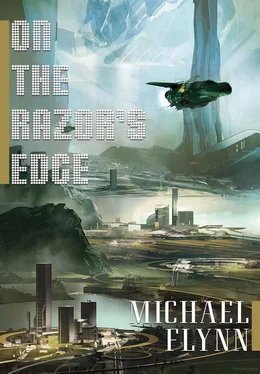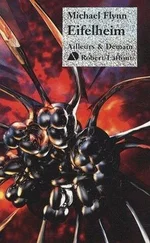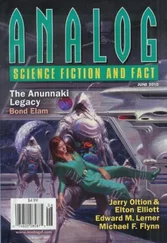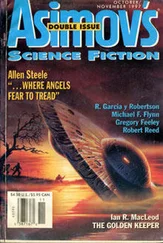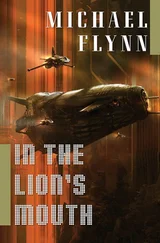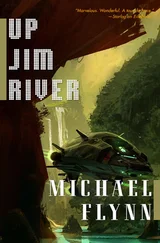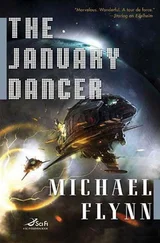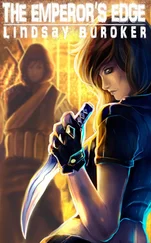Don’t worry, said the young woman in the chiton. Like the Brute always says, we’ve got him outnumbered.
“Pollyanna,” Donovan chided his optimism, “you’ve forgotten his magpies.”
We may have a handle there, said the young man, if I’ve read the body language aright.
The medic led Donovan down a carpeted hallway lined with paintings composed of intersecting geometric figures in various bright colors. Hand painted, the Pedant noted, and not drafted by machine. The subtle imperfections in the art—or should I say “craft”—
You shouldn’t say anything, the Sleuth suggested.
—add market value to the work. They grant an assurance of exclusivity that machine-craft does not. Perfection is too easily imitated; flaws are unique.
The Fudir’s previous life as a thief in the Terran Corner of Jehovah had given him an appreciation for art that a mere connoisseur did not possess. “We could make a shiny ducat from these pretties,” he murmured.
They give insight into Gidula, said the young man, both their hand-crafted nature and their subject matter.
Subject matter?said the Brute. They’re just shapes.
Yes. Exactly.
The hallway led around an S-curve and ended at an open archway, on the other side of which lay a vestibule. A young magpie sat behind a minimal desk, engaged in a multitude of tasks. One hand wrote on a light-pad with a stylus; the other hand entered data on a touch screen. Her throat worked as she subvocalized into a pickup. Her goggles, which lent her an insectlike appearance, flickered with disparate information on each lens. Earwigs undoubtedly whispered independently in each ear. A paraperceptic. Donovan regarded her as he might an evolutionary ancestor, and not without a little envy. Her channels were merely sensory and motor. Her intellect and will had not been fragmented into independent personalities.
“Ah, don’t fret, Donovan buigh,” the Fudir told himself. “You’d be lonely without us.”
Two other magpies sat in the vestibule along one wall, talking to each other in low voices. When Donovan and the medic entered, they glanced up and fell silent. One of them favored Donovan with a barely perceptible nod.
The office manager appeared not to notice, but that was the way of paraperceptics. They took a certain pride in what they called “multitasking” and delighted in disregard. Donovan was certain that she had seen him, studied him, and informed Gidula immediately of his arrival. The other two magpies returned to their conversation.
The medic had handed his slug to the office manager and departed. The Fudir looked about the room, and saw two open seats on opposite sides of the room. He started toward one, stopped, and turned toward the other, stopped again, and scratched his head. This attracted the attention not only of the two magpies but also of the office manager, which the scarred man counted as a signal accomplishment.
“What are you up to, Fudir?” he muttered.
In a whisper: “Let’s maintain the charade that we’re still fragmented.”
After that display of prowess with Ekadrina?
“How many of Gidula’s people actually witnessed that fight? As far as they’re concerned, their boss rescued us from certain death.”
“Maybe so, but I don’t think the Old One will be fooled.”
Perhaps not, but the manner in which he is not fooled may tell us much.
Did you notice the body language of the three magpies? said the young man. Number Two, the paraperceptic, seemed suspicious—but Twenty-three smirked while his friend Seventeen stifled genuine distress.
“Conclusions?”
The manager suspects the Fudir was playing Buridan’s Ass. In her position, she’d be privy to most of what Gidula knows. Twenty-three holds us in contempt. He knows we were supposed to be broken and doesn’t yet know we fought Ekadrina to a draw. But Seventeen …
“… is a genuine partisan of Geshler Padaborn.”
Who is supposedly us. The scarred man would not mind so much being a great hero from the past if he could remember any of the heroics. When the Names had diced and sliced his mind, they had buried his memories under a pile of shavings and debris.
Our therapist, Five, is also a Padabornian, the young man added.
The scarred man considered this. He had decided long before that Gidula was attempting to subvert the Revolution from within. Why bring Padaborn back if you truly believed him a ruined man? To raise the rebels’ spirits with the idea that Padaborn had returned, then crush them with the reality of the scarred man.
On the other hand—if anything as twisted as the politics of the Confederation had only two hands—broken or not, Geshler Padaborn knew some way into the Secret City; and whatever Gidula’s original purpose in peeling the scarred man from his uisce, he had other purposes now.
Yet Donovan understood that Ravn had been sent to snatch him more than two metric years ago and the rebels had determined to attack the Secret City a little over a year ago. Their curiosity regarding Padaborn’s escape was more recent than their desire to secure his person.
Unless, said the young man in the chlamys, we have been misreading them all along.
“That’s your job,” Donovan murmured. “You’re supposed to get inside the heads of our enemies and figure out what makes them tick.”
“Without,” the Fudir warned, “empathizing too much.”
Several of the Shadows now in rebellion had fought to suppress Padaborn’s Rising. One obvious reason for the contradiction was that the Rising had been premature and in the interim minds had changed, enthusiasms had shifted, and the doubtful had grown convinced. Perhaps the Names had overreacted in the aftermath. Such measures could trigger the very revolutions they meant to crush. Lucky Nanduri, the fifteenth maxraj of New Chennai, had put down the Mylapore riots with exquisite cruelty. His tontons had burned entire neighborhoods, blown up family compounds, executed citizens rounded up in sweeps regardless of whether they had participated in the riots or not. “ Fear begets obedience, ” the maxraj had declared. What it begat was twelve weeks of quiet. Then rebellion erupted across the continent, from Royapuram to Coromandel. When royal troops were ordered decimated as punishment for allowing the sack of the Coromandel Taj, the Palace Guard itself had turned on the maxraj, slaughtered him, and offered the Golden Tuban to a surprised—and rather unwilling—second maternal cousin.
Something similar may have happened in the wake of Padaborn’s Rising.
Watch the magpies, the young man advised them. They dream “the great game of the beautiful life.” There is ever romance in the heart of cruelty.
Aye, thought Donovan. The grand gesture, the emotion that tugs at the heart, the sheer drama of Padaborn on the Rooftops might lure Shadows into rebellion for no better reason than the tears of a pasdarm.
On the Rooftops…? There was a vague recollection there, but it would not come clear.
There was another answer, less obvious. The Shadow War was not in fact a resumption of Padaborn’s Rising. “The lamp that was lit” had not been lit again but was another struggle entirely, with different goals and only coincidentally similar objectives.
“Who fights for anything so abstract as ‘liberty’ or ‘tradition’ anyway?” Donovan grumbled. “The Shadows fight for injury or revenge or ambition, and because they have reached the point where nothing else is left. The fine words they make up later to justify themselves. An ambitious man like Oschous Dee might prate about oppression, but he was not oppressed, and had the paths of his ambition wound the other way, he would be defending the Names as loyally as Ekadrina.”
Читать дальше
